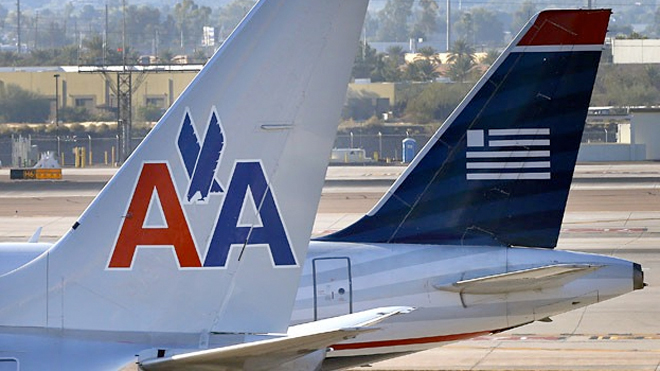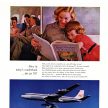A respected aviation observer contends the once-again on-track merger of American Airlines and US Airways could actually bring about more, not less, airline competition.
“Over the next five years we can expect to see additional market entry from start-up [airlines] who are going to take advantage of consolidation opportunities,” contends Josh Marks, CEO of masFlight, an aviation consultancy. “History proves that when airlines consolidate service that sets up new opportunities for new-entrants.”
That consolidation got the green light to move forward this week when the United States Department of Justice reached an out-of-court accord with American and US Airways in which the two carriers will divest themselves of a number of critical takeoff and landing positions at Reagan Washington National and New York LaGuardia. American and US Airways will also relinquish a pair of gates at each of five U.S. airports, including Los Angeles International and Chicago O’Hare.
The idea is to open up those airports, particularly Reagan National and LaGuardia, to more competition from low-cost carriers such as Southwest and JetBlue.
“This agreement has the potential to shift the landscape of the airline industry by guaranteeing a bigger foothold for low-cost carriers at key U.S. airports,” believes U.S. Attorney General Eric Holder. The nation’s top law enforcement official contends, “passengers will see more competition and nonstop and connecting routes throughout the country.”
The issue for at least one other noted aviation analyst is why the Department of Justice’s lawsuit had to happen at all.
“Everybody who worked on this merger from the beginning knew that there would be a divestiture of slots at [Washington Reagan] National and [New York] LaGuardia,” says Darryl Jenkins, president of the American Aviation Institute. “That was a given. What is interesting is the amount of money the government wasted in getting to a solution that was foregone at the beginning of this.”
On August 13, 2013 DOJ and six state attorneys general and the District of Columbia, filed an antitrust suit against AA and US contending that the US Airways’ $11 billion acquisition of American would have “substantially lessened competition for commercial air travel in local markets throughout the country,” according to a DOJ statement.
Josh Marks says the American/US Airways merger is probably the last of its kind we’ll witness, at least for a while. The U.S. skyscape should soon be dominated by a trio of so-called “network” carriers – American, Delta and United. Southwest is the last member of the so-called “Big Four.” But it’s those anticipated new-entrants, along with more airport access by existing low-cost carriers, that Marks maintains will spark more consumer-friendly competition.
The merged carrier will create the world’s largest airline with 6,700 daily flights to 336 locations in 56 countries. It will have $40 billion in revenue, 100,000 employees and around 1000 aircraft excluding regional affiliates. The two airlines have over 600 aircraft on order.
























